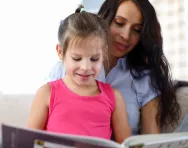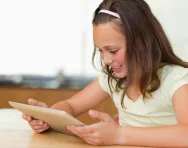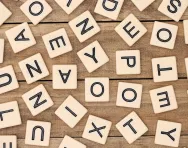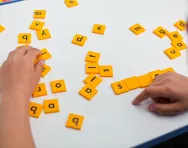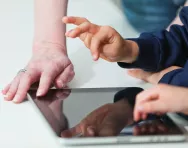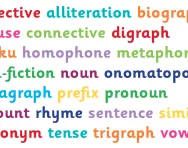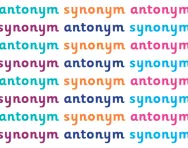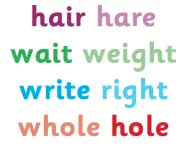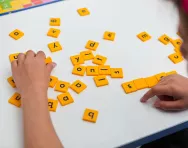Word puzzles articles
Best brain-training apps for kids
Help your child develop essential skills such as problem-solving, critical thinking and spatial awareness with these brilliant brain games.
Best literacy resources
Whether your child is just learning to read and print letters or looking for ways to put their creative writing skills to the test, we've rounded up some fantastic resources to help them practise phonics, grammar, story-writing and comic-creating at home. Plus there are loads of different ways to connect with authors and listen to stories.
12 of the best home learning websites for kids
We've rounded up some of our favourite online resources to support your child's learning at home.
Best word puzzle apps for kids
Help your child brush up on their spelling, phonics and vocabulary skills with these brilliant games-based apps.
9 strategies for learning primary school spellings
If learning spellings always ends in tears and tantrums, trying another technique could help make it a less stressful process. We've rounded up the best methods to try.
Best word games for children
Expand vocabulary, develop spelling skills, learn about homophones, anagrams and synonyms and compose huge numbers of silly sentences... all while having a great time. Whether your child is 3 or 13, our favourite word board games and literacy card games offer fast-paced fun for the whole family.
Why games-based learning is great for your child
If you despair of the amount of time your child spends attached to their tablet, think again: games and apps are an important part of their learning journey, from pre-school to secondary school, and can help to improve problem-solving skills and communication, as well as boost motivation. Lucy Dimbylow finds out why gaming means learning in the twenty-first century.
Primary literacy glossary for parents
From adjectives to writing frames, TheSchoolRun's primary-school literacy glossary offers a complete guide to all the concepts children are taught in EYFS, KS1 and KS2 English. Brush up on your own literacy skills, clear up homework confusion and understand exactly what your child is learning at school by reading our basic definitions (with links to more detailed explanations, teachers' tips and examples).
What are synonyms and antonyms?
We explain what synonyms and antonyms are and how children are taught to use synonyms to improve their writing in primary school.
What is a homophone?
Homophones are tricky words which sound the same but have different meanings and are sometimes spelled differently (there, their and they're, for example). We explain how your child will be introduced to homophones in the classroom and tricks you can try at home to help them master homophone spelling.
10 ways word puzzles can help your child
Crosswords, word searches and hangman aren’t just handy ways to keep your child quiet for five minutes; they could also boost their learning in some surprising ways. Here’s how…

